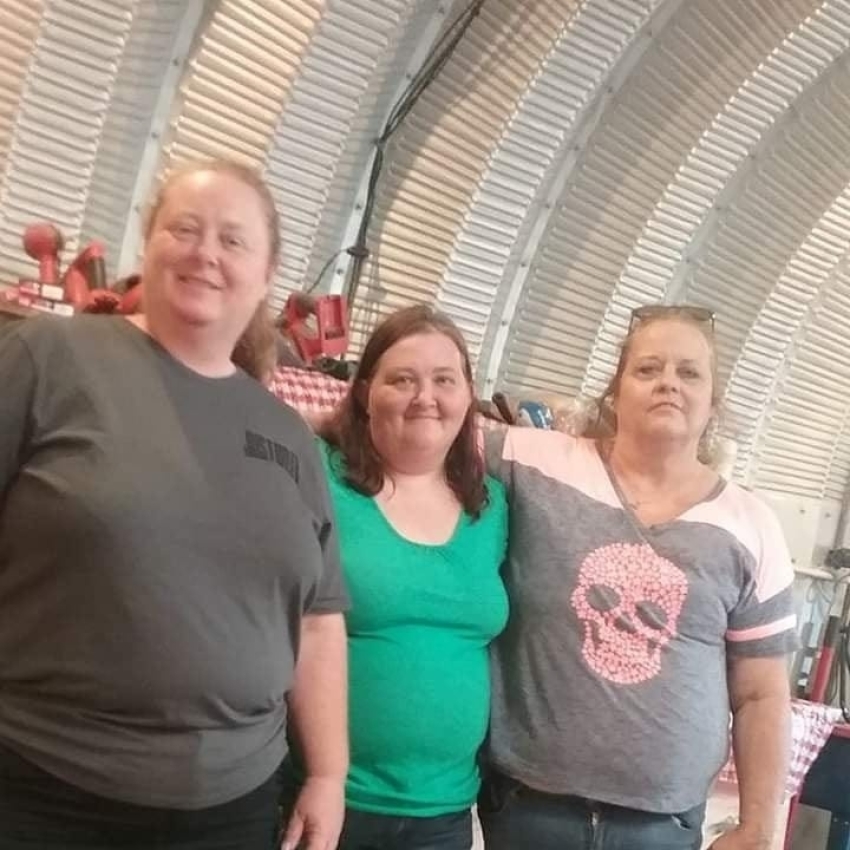NC woman says her ‘faith in God has been restored’ after sister survives COVID-19 battle

A woman in eastern North Carolina who spent several weeks supporting the recovery of her sister who battled COVID-19 alone at a local hospital says she and some members of her family have rekindled their faith in God after her sister recovered.
“Our faith in God has been restored for some of us. We believe He’s the reason she’s still here,” the woman, Amanda Stocks,told WNCT.
“When she was in there everybody was really really emotional. Some days we’re ok [while] other days we’re snapping each other heads off. When it first happened, I literally asked God, ‘Why did you do this to my sister’?”
Stocks’ sister Ginny Gardner tested positive for the coronavirus in October and later began experiencing difficulty breathing. Gardner was admitted to the Vidant Medical Center in Pitt County where she spent weeks on a ventilator.
Her family could only connect with her through Zoom calls due to coronavirus restrictions in place at the medical facility.
At points during the ordeal, Stocks said her family worried about whether Gardner would survive. The family would sometimes eat close to restaurants at the hospital just to be close to Gardner
A week before Christmas, family members were relieved to learn that Gardner would be released. She is now recuperating with oxygen therapy.
In a Jan. 3 Facebook post, Stocks explained that her sister is "doing great."
"We all got our Christmas miracle and we will never forget all the kind words and prayers you all have said and given to and for our family," she told Facebook friends.
Stocks, who initially thought the pandemic was overblown, told the local news outlet that she doesn’t see the virus in the same light as she did before her sister’s illness. She is urging people to be careful.
“If you don’t believe you need to start believing. Because it can bring someone down that you love,” she told the network.
“Take care of yourself. If you’re not feeling well, stay home,” she warned. “If you don’t want to wear a mask, that’s on you. But, stay at home. Don’t carry out what could be deadly to someone else.”
North Carolina’s COVID-19 dashboard shows that as of Monday, the daily percent positive test rate for COVID-19 jumped to a concerning 16.5%, the highest of the pandemic.
The state also reported 5,187 new COVID-19 cases along with 3,635 people currently hospitalized with the virus, setting a new high for that statistic from the North Carolina Department of Health and Human Services.
Additionally, 6,941 people have died statewide from a total of 570,111 COVID-19 cases.
In December, an analysis by the Pew Research Center found that sparsely populated rural areas accounted for about twice the number of coronavirus-related deaths as the most densely populated cities like New York City, which initially suffered the brunt of virus casualties at the start of the pandemic.
Three people on average were found to be dying each day in congressional districts where fewer than 5% of residents live in dense concentrations from September to November. From March to May, those districts averaged 1.1 deaths per day.
Districts in which 40% to 90% of residents live in urban or dense suburban neighborhoods suffered an average of 1.5 deaths each day from September to November. Districts with more than 90% of residents living in urban or dense suburban neighborhoods also averaged 1.5 deaths each day from September to November. Districts with more than 90% of residents living in urban or dense suburban neighborhoods averaged 5.7 deaths per day from March to May.
Amesh Adalja, a senior scholar at the Johns Hopkins Center for Health Security, told The Hill that the trend might be a reflection of residents in rural areas being more likely to flout recommendations from health experts to avoid social gatherings.
“We have people that are less likely to take precautions, and [we] have a lot of pandemic fatigue going on,” Adalja told the outlet. “A lot of people have given up.”



























